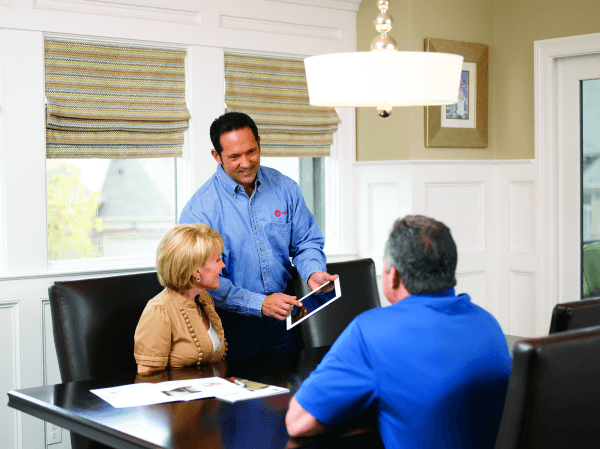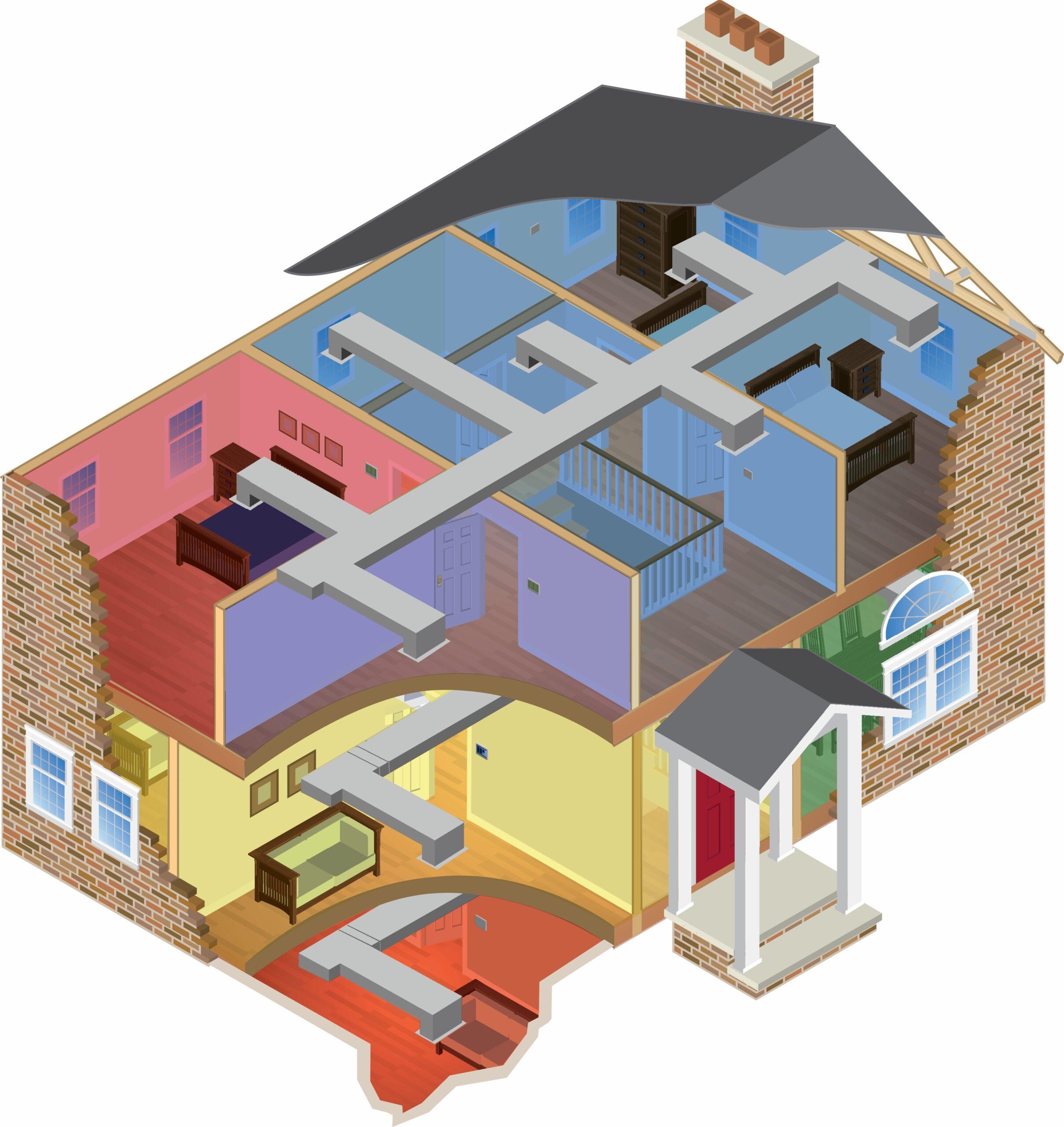What Size HVAC Unit Do I Need?
BTUs, square footage, and more are key to helping you decide what size HVAC unit your home needs.
Find out how BTUs, square footage, tons, and other factors determine the ideal size for your HVAC unit.
What size air conditioner or furnace do I need for my home? We get this question a lot and it’s an important one. Because if you buy an HVAC system that’s too big, you’ll end up wasting money and energy. And if it’s too small, you won’t get enough cool or warm air flowing through your home.
Figuring out an accurate HVAC size involves 2 basic steps. But there are a lot of details to consider in the process.

STEP 1: Determine how many BTUs of heating and tons of AC you need
Method 1: Manual J Calculation
The best way to determine the perfect HVAC unit size is to have a Manual J calculation done for your house. The Manual J calculation is the most precise measurement available because it considers factors like:
- Square footage
- Climate zone
- Ductwork
- Number and style of windows
- Natural shade or sunlight
- Quality and amount of insulation
- Number of people using the space
- Heat-generating appliances
Many utility companies offer a free energy audit that will provide you with your Manual J calculation — just ask. You can also hire an energy auditor or HVAC dealer to do your audit. With a Manual J report in hand, you’ll know exactly how many British Thermal Units (BTUs) of heating and cooling you need for your home.
This audit will provide an estimate for the HVAC tonnage required for a given space. One ton of cooling capacity is equivalent to 12,000 BTUs per hour. A 3 ton AC unit can cool a space by 36,000 BTUs per hour, accommodating most moderately sized homes, while a 4 or 5 ton AC unit may be required for larger homes.
Method 2: Square Footage Measurements
You can also get a rough estimate by looking at the square footage of your house. This BTU per square foot chart is a general guideline that covers tiny houses to average size homes.
| House Square Footage | BTUs Needed |
| 100 – 150 | 5,000 |
| 150 – 250 | 6,000 |
| 250 – 300 | 7,000 |
| 300 – 350 | 8,000 |
| 350 – 400 | 9,000 |
| 400 – 450 | 10,000 |
| 450 – 500 | 12,000 |
| 500 – 700 | 14,000 |
| 700 – 1,000 | 18,000 |
| 1,000 – 1,200 | 21,000 |
| 1,200 – 1,400 | 23,000 |
| 1,400 – 1,500 | 24,000 |
| 1,500 – 2,000 | 30,000 |
| 2,000 – 2,500 | 34,000 |
No matter which method you choose, the goal is to estimate the number of BTUs you need to comfortably cool or heat your entire home. Once you’ve got that, it’s time to shop around and make your HVAC pick.
STEP 2: Decide which unit to buy
Now it’s time to work with an HVAC dealer to learn more about the heating and cooling products they offer. Sometimes the dealer may not have your exact BTU size — but don’t worry. If your BTU requirement is between sizes, simply go with the bigger unit. For example, the Manual J calculation may say you need 25,000 BTUs for cooling. But your HVAC dealer only has air conditioners that handle 24,000 or 30,000 BTUs. Choose the 30,000 BTU unit to make sure your comfort needs are covered.
Having a little extra power isn’t bad. This will make sure your system can handle the load on days with extremely high or low temperatures. If you get a unit that’s too small, you may regret it on the hottest and coldest days of the year.
Just beware of getting too big of a unit, because it will heat or cool your home too quickly and then shut off. This frequent on and off cycle will cause uneven temperatures and higher energy bills.
Rule of Thumb – The maximum size unit you should buy would be 15% over the BTUs you need for cooling and 40% of the BTUs for heating. The max for heat pumps is 25%, since it handles both cooling and heating.
Your local climate and weather conditions play a significant role in determining the right HVAC size. If you live in a region with extreme heat or cold, it's important to choose a system that can handle seasonal demand and keep your home comfortable year-round. Additionally, factors such as humidity levels and altitude can also impact your HVAC system's performance. Consulting with a knowledgeable HVAC professional can help you assess these factors and make an informed decision.
Need more advice? Contact your local Trane Comfort Specialist™ to learn more about your heating and cooling options. You can work together to find an HVAC that’s right for your home.
Contact a dealer
From finding the right HVAC system to maintaining it, a dealer is your best resource.
Get your questions answered every step of the way.




